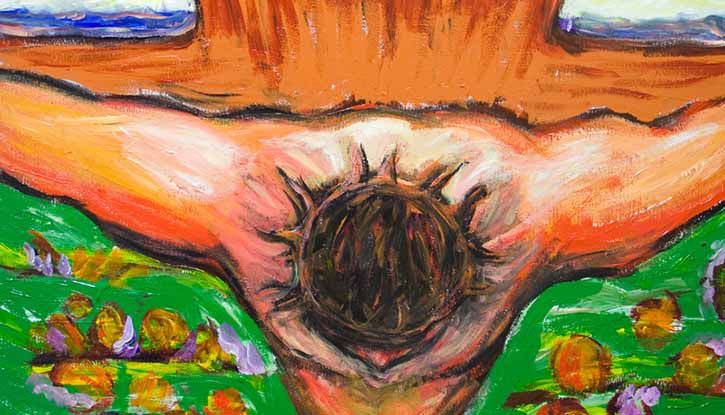Learning to Live in Hope of Resurrection

I have to admit that writing a blog for Good Friday is a real challenge for me. To me, Good Friday has always felt like one of those inevitable processes that you have to get through to reach the glorious and grace-filled outcome on the other side. As we know, there would be no Easter without Good Friday. But my childlike [or perhaps it’s ‘childish’] nature always asks “Why?” “Why can’t God give us the glory of Easter without the horrific death of Good Friday?” And the childish voice would add, “It’s just not fair!”
Then there is the guilt and shame I have about these feelings. It’s reminiscent of that saying I despise, “First World problems.” As a person of privilege, do I have a true appreciation for the gift of Easter in the first place? I mean, I’ve never known true suffering. I’ve never felt profound hunger, or gone without clean water for unbearable lengths of time. I’ve never worried that I or a family member might have an illness or injury that would go untreated. I have known friends and family who have had incurable diseases, but they did have access to the best medicine possible. Unlike many, I’ve never even put my life on the line for a greater cause. How can I really relate to Easter without a personal Good Friday to get me there?

As I move through this process of thinking about the Easter promise, the true cost of getting there and my own deficits when it comes to that cost, my thoughts turn to the partners of Episcopal Relief & Development. We work with some of the most incredible people on the planet. These are people who know (some of them personally) what it’s like to live without clean water, or to be truly hungry. There are women we work with daily who have been victims of violence because of their gender (not only an international problem). There are even partners of ours who put themselves in life-threatening situations in their response to human need and suffering.
These are people who live in hope of resurrection. When you meet them, they are people who smile broadly and greet you with true warmth. These are the people who are living symbols of what it means to “seek and serve Christ in others.”

The Good Friday experiences of our partners, and their ever-present hopes for Easter, drive them and strengthen them for the work that God has called them to do. It is possible that I will never know what they know from their experiences, so the way that I choose to connect to them is to pray for them and their work. It is this prayer that keeps me mindful of their work, their struggles and their successes. This prayer is also the most powerful way that I know of to support them in their work.
I don’t want this to sound over-simple, or like a privileged cop-out. Just praying for faceless and nameless ‘partners of Episcopal Relief & Development’ will never be enough. To really connect to them in the Spirit, I need to get to know who they are, what they do, where they work and how they work.

At the beginning of this year, Episcopal Relief & Development sent a booklet called Walk In Love to the bishops, congregations and ministries of The Episcopal Church. This cycle of prayer invites Episcopalians to learn about our partners, giving details about where they work and what they do to strive with communities toward a thriving future. It then invites us to pray for them and their ministries, with words from the Book of Common Prayer and other texts from around the world. Furthermore, every one of our partners uses an asset-based approach, and episcopalrelief.org provides resources that give helpful background to explain the power and importance of this empowering, context-driven methodology.

On this Good Friday, I invite you to devote time to thinking deeply and intentionally about those in the world who embody what a true hope of resurrection looks like. Use Walk In Love or episcopalrelief.org to learn about our partners and the life-giving work they do. Then, plant them in your heart through prayer as an incarnational act of being Christ in the world. Only then can we truly serve the risen Christ in all others in the world.
Prayer for Poverty and Hunger by Ann Case

—————————————————
Sean McConnell is Director of Engagement for Episcopal Relief & Development.
Images: Top, Top View Crucifixion of Jesus Christ by Kazuya Akimoto. Middle 1, Community health workers at Siempre Unidos, Episcopal Relief & Development’s partner health program in Honduras. Middle 2, Episcopal Church staff ready to distribute posters and items in response to the Ebola outbreak. Middle 3, Hurricane Katrina disaster response. Last, Reverend Joseph El Hag of SUDRA (Sudanese Development and Relief Agency) with children in the South Sudan IDP (Internally Displaced Person) settlement.
An Historical Journey
We invite you to journey with us through our 75 years of healing a hurting world. View our interactive timeline that takes you from our start in the 1940s to the present, and witness our growth in vision and direction. We thank you for your support that allows us to strive towards a flourishing future. It takes #AllHands75!



